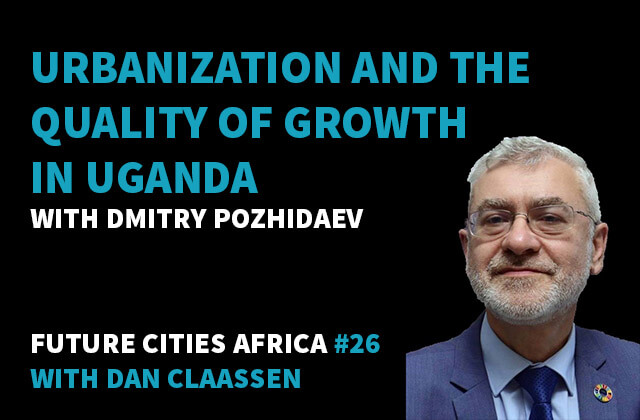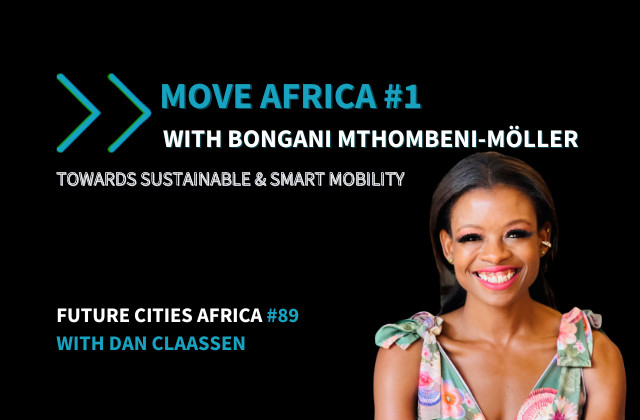Listen to Audio
Water Strategy and Future Thinking at the City of Cape Town
Michael Webster is Executive Director for Water and Waste at City of Cape Town. We explore the City’s water strategy and key commitments, lessons from the 2018 water crisis, recent progress made, future thinking, new technologies, opportunities and challenges for private sector collaboration, and advice for cities grappling with water management.
Stay Connected
Discussion highlights
This episode is presented in partnership with the City of Cape Town
Read the Water Strategy here
How Cape Town compares to other international and African cities in the water sector
- Approx 80% of customers have reticulated water and sewerage services.
- If Cape Town were in the USA, it would be in the top 10% water utilities by size.
- Big challenges do exist:
- A large number of informal settlements who have the inconvenience and inadequate supply.
- Water quality issues in rivers and sewer spills.
- In Africa demand for water is increasing, almost tripling over 25 years.
- Supply is deteriorating due to climate change and water quality.
Key takeaways from beating the water crisis of 2018
- 4 major drought events over the past 100 years.
- 2014 - 2018 drought was 1 in 590-year rainfall event.
- City gets 98% of the water from surface water (dams that rely on rainfall).
- Reduced water demand from city from around 1000 million litres per day to 500 million litres per day.
- The partnership between the City and their customers.
- City used leak detection, improved metering, pressure management, higher tariffs, major communications campaign.
- Each citisen played their part. Using the smallest amounts they could. Flushed their toilets less.
- Agriculture played their part, wine farming reduced their demand by approx 60%.
- City of Cape Town won an award from the International Water Association for the number one water saving city in the world: Reduced 55% of demand over 3 years.
In hindsight, what the City would have done differently to avert the water crisis of 2018
- Over-reliance on surface water is their biggest vulnerability.
- Over the next 20-30 years predicting 30% reduction in surface water supply due to climate change.
- Perth example: 85% reduction of rainfall in their dams over past 50 years.
- Keep demand down: Target 130l per capita per day.
- Alternative water supply: Groundwater, reused water, desalinated water, and efficient use of water.
5 commitments of the City of Cape Town water strategy
- Safe access to water and sanitation for all.
- Wise water use.
- Sufficient reliable water supply to all citizens.
- Ensure the regional water supply system is efficiently managed.
- Transition to water sensitive city.
- Mike expands on the above 5 commitments and also mentions international examples.
- Visit capetown.gov.za/thinkwater
How these commitments will be met and against what indicators and schedule
- R40 billion capital programme over next 10 years. Main focus on bulk water, wastewater and reticulation
- Focus currently is on building capacity within the department to build on these measures.
- Goal of water resilience by 2030. Mike explains how.
- Goal by 2040 to revitalise whole supply and clean river systems. Mike explains how.
Progress made to date (June 2021)
- Development of this water strategy together with implementation p
- The implementation plan has 8 transversal programmes spanning the whole department
- 4 new directors hired
- Restructured water and sanitation department. From 11 to 13 branches.
- Added customer service branch and capital & contracts management branch.
- Started the new water programme for alternative water supply, Mike explains.
- Temporary desalination and reuse plants.
- Extended groundwater exploration in Cape Flats aquifer, Table Mountain group aquifer and Atlantis aquifer. Drilled over 100 boreholes.
- Started clearing alien invasive species.
- Progress toward wastewater treatment works.
- Progress on sewer spills.
- Progress on maintenance.
Key technologies that can help achieve the Water Strategy’s vision
- Desalination
- Groundwater
- Reuse
- Wastewater
- Bulkwater
- Automated meter readings.
- IT systems to support their operations.
- Mike expands in more detail on above points.
Advice, opportunities and challenges for private sector to collaborate with the department
- R40 billion capital programme over next 10 years will mostly be contracted through private sector.
- Mike expands on the challenges and importance of collaboration.
Advice for cities grappling with water management
- Climate change is real.
- Build resilience: diversity sources, systems, staff.
- Build sustainability: Water quality impacted by sewage system and waster water treatment plants. Requires long term investment and collaboration with public and other stakeholders.
- Build inclusion: Informal settlements currently don’t feel part of the system. It creates unrest.
- Customer orientation: Trust is everything. Need a clear strategy, clear priorities, delivery and communication.
- Partnerships are key: Shared water strategy. Mike explains.
About Michael John Webster
Leadership, management and operational experience in water and sanitation over 25 years. Currently, Executive Director of Water and Waste in the City of Cape Town. 16 years with the World Bank in Africa, Europe and South Asia.
As Executive Director of Water and Waste, responsible for the Water and Sanitation Department and the Solid Waste Management Department of the City of Cape Town. The municipality provides utility services to over a million households ranging from informal settlements to formal freehold and cluster housing, and strives to do so in a sustainable, equitable and affordable way. The Executive Director is part of the Executive Management Team reporting to the City Manager.
Prior experience includes water and sanitation specialist in different units of the World Bank since 1999, and 8 years’ experience outside of the World Bank working on informal settlement upgrading and rural development in South Africa.
Holds a Master’s in Public Policy from Princeton University, as well as a M.Sc in Water and Waste Engineering from Loughborough University and a B.Sc in Civil Engineering from the University of Cape Town.
Source: LinkedIn







